#Judge Virginia Kendall
Text
The city of Naperville can begin enforcing its ban on the sale of assault rifles, a federal judge has ruled.
U.S. District Judge Virginia Kendall denied a request from a Naperville gun shop owner, who wanted a temporary injunction to block the ordinance halting the sale of assault weapons from going into effect until a lawsuit seeking to overturn it is settled in court.
Kendall said both Naperville’s ban passed in August — and Illinois’ ban on the sale and distribution of assault weapons and high-capacity magazines, approved five months later — are “constitutionally sound.”
“Illinois and Naperville compellingly argue their laws protect public safety by removing particularly dangerous weapons from circulation,” she said in her opinion.
City Attorney Michael DiSanto said Naperville’s ordinance is now in effect as a result of that decision and subject to compliance and enforcement.
“There have not been any court rulings regarding the state’s assault weapon legislation that inhibit the enforceability of the city’s ordinance,” he said.
In her ruling, Kendall said the Naperville gun shop owner failed to demonstrate he would be irreparably harmed by the city’s ban.
Robert Bevis, owner of Law Weapons & Supply, and the National Association for Gun Rights filed a federal lawsuit in September saying the city’s ban on the sale of assault rifles is “unconstitutional” and should be overturned.
“Bevis has not furnished any evidence that he will lose substantial sales, and he can still sell almost any other type of gun,” Kendall said in the opinion.
She added that while a high number of assault weapons are in circulation, only 5%, or 24 million of the 462 million firearms, are assault weapons.
“As a percentage of the total population, less than 2% of all Americans own assault weapons,” she said.
Bevis and the gun rights organization sought a court order from Kendall to block Naperville’s ban on assault rifle sales from going into effect Jan. 1 until the lawsuit was resolved.
In December, the city agreed not to enforce the ban until Kendall ruled, which she now has.
In the meantime, Illinois enacted its own ban on the sales of high-powered weapons and high-capacity magazines that would supersede Naperville’s ordinance. That law also is being challenged in the courts, and several judges in southern Illinois counties put a temporary hold on its enforcement for downstate plaintiffs and firearms dealers.
Bevis has not filed a challenge to the state law.
Neither he nor the gun rights organization could be reached for comment on Kendall’s ruling or if they might seek to appeal it.
#us politics#news#2023#Illinois#Naperville#chicago tribune#Naperville sun#gun control#gun rights#2nd amendment#Robert Bevis#National Association for Gun Rights#Michael DiSanto#Judge Virginia Kendall#assault weapons ban#high capacity magazine ban
15 notes
·
View notes
Text
The historic corruption trial of ex-Chicago Ald. Edward Burke restarted Tuesday with the questioning of more potential jurors, who so far have been asked everything from whether they know what ward they live in to the names and breeds of their dogs.
One thing the jury pool did not see as they assembled in the 25th Floor ceremonial courtroom for coffee and donuts Tuesday morning: The large wall display featuring famous public corruption cases at the Dirksen U.S. Courthouse, including former Illinois governors Rod Blagojevich and George Ryan.
Per the request of Ed Burke’s attorneys, the display, part of larger montage about the court, was covered up with brown paper and cordoned off by a black screen so Burke’s jurors don’t see it.
It is likely that jury selection will stretch into Wednesday, U.S. District Judge Virginia Kendall said from the bench as the proceedings began Tuesday.
Burke’s family, including his wife Anne and at least one of his sons, sat in the front row alongside a priest who attended to support the former alderman. Burke swiveled in his chair and smiled broadly at them as they arrived.
Anne Burke, a former state Supreme Court justice, examined a printed copy of a spreadsheet with details about each prospective juror.
Among those questioned Tuesday morning were a social worker who works for an Alzheimer’s organization and a mother of seven who loves NASCAR. A Wicker Park man in his 20s said he already knew a little about the Burke case.
“I’m not sure how impartial I could be,” he said, a little shyly. The judge said they would discuss that at sidebar.
Jury selection got off to a slow start Monday, with attorneys questioning only 20 of the 53 prospective jurors on Monday’s panel. The rest of that group will be questioned Tuesday before another panel of 50 is expected to get its turn.
Kendall has said they need to get about 44 people who make it through “for cause” strikes before proceeding to the next phase.
Among the citizens questioned so far who could decide the fate of a legendary Chicago political figure: a part-time butcher, a Chicago Public Schools teacher, and a retired IRS agent with a passion for roller skating.
The son of a Democratic ward boss and alderman, Burke, 79, served more than 50 years on the City Council and allegedly ran the Finance Committee like his own personal fiefdom before his office was dramatically raided by the FBI in November 2018.
[ From Chicago machine maestro to indicted alderman, Ed Burke’s corruption trial follows half-century of clout ]
When the judge Monday asked the potential jurors if anyone knew Burke, a woman raised her hand and said she knows him from “the country club,” presumably meaning the Beverly Country Club, which was staked out by the FBI as part of the investigation. Kendall said they would ask about it more specifically when it’s the woman’s turn to be interviewed.
The judge and attorneys delved deep into jurors’ hobbies and personal lives, down to their favorite “Ted Lasso” characters and the names of their pets.
Prospective jurors who live in Chicago were asked if they knew who their alderman was. Generally they answered that they did not. A few said they had heard of Burke, but didn’t know details about his case.
Burke is charged with 14 counts including racketeering, federal program bribery, attempted extortion, conspiracy to commit extortion and using interstate commerce to facilitate an unlawful activity.
Burke’s longtime ward aide, Peter Andrews Jr., 73, is charged with one count of attempted extortion, one count of conspiracy to commit extortion, two counts of using interstate commerce to facilitate an unlawful activity, and one count of making a false statement to the FBI.
The third defendant, Cui, 52, of Lake Forest, is charged with one count of federal program bribery, three counts of using interstate commerce to facilitate an unlawful activity, and one count of making a false statement to the FBI.
All three have pleaded not guilty.
At the heart of the indictment are more than a hundred secretly recorded meetings and phone calls allegedly showing Burke using his elected office to win benefits for himself, mostly through business for his private law firm.
Burke’s defense team, meanwhile, will try to show that Burke’s maneuvering was nothing more than politics as usual. In fact, Burke is not charged with performing a single official act as alderman in exchange for anything of value, and some of the projects he allegedly put his thumb on the scale for weren’t even in his ward, his attorneys have argued.
The crux of Burke’s defense will likely be to knock down former Ald. Daniel Solis, who was caught in his own corruption scheme before agreeing in 2016 to become an FBI mole and secretly record Burke and others over a period of nearly two years.
4 notes
·
View notes
Text
Ex-Prosecutor Markus Funk and Judge Virginia Kendall (N.D. Ill.) on Possible Prosecution of S. Ct. Leaker
Ex-Prosecutor Markus Funk and Judge Virginia Kendall (N.D. Ill.) on Possible Prosecution of S. Ct. Leaker
A new op-ed in the Wall Street Journal Wednesday (written with the help of ex-prosecutor Andrew S. Boutros), following up on their Bloomberg Law piece from May 11, lays out some possible bases for the prosecution:
Consider Section 1512 of Title 18 of the United States Code, which makes it a crime to influence an official proceeding corruptly. A federal employee seeking to influence the proceeding…
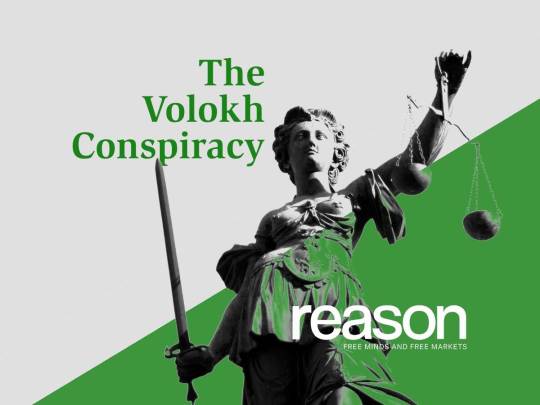
View On WordPress
0 notes
Photo

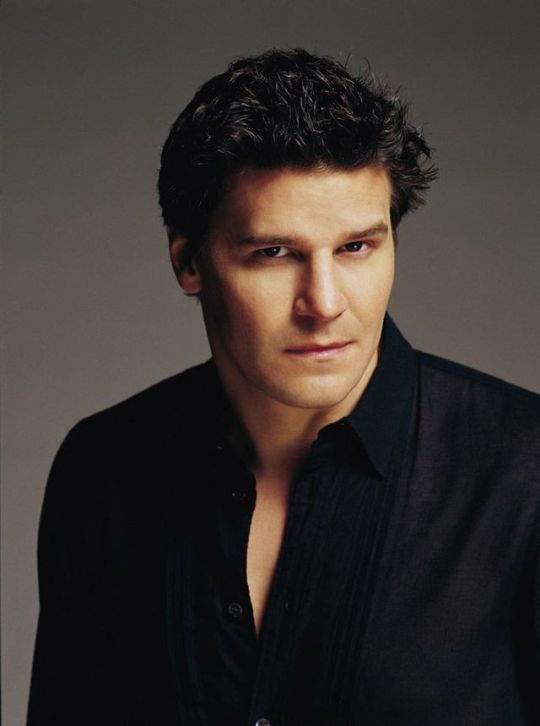



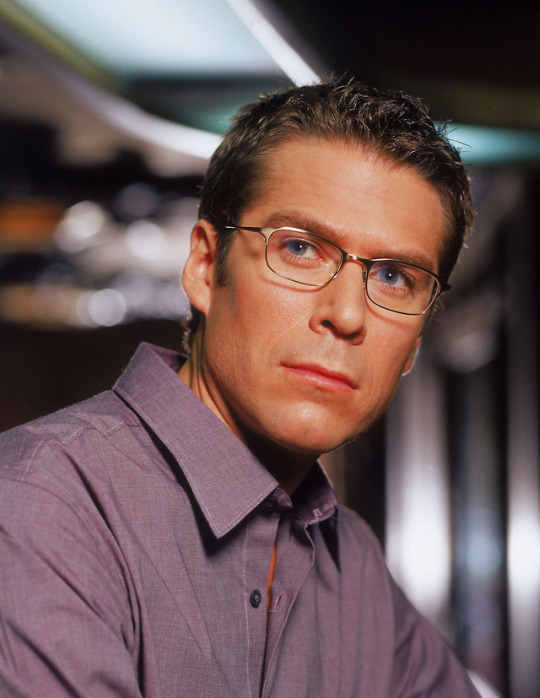
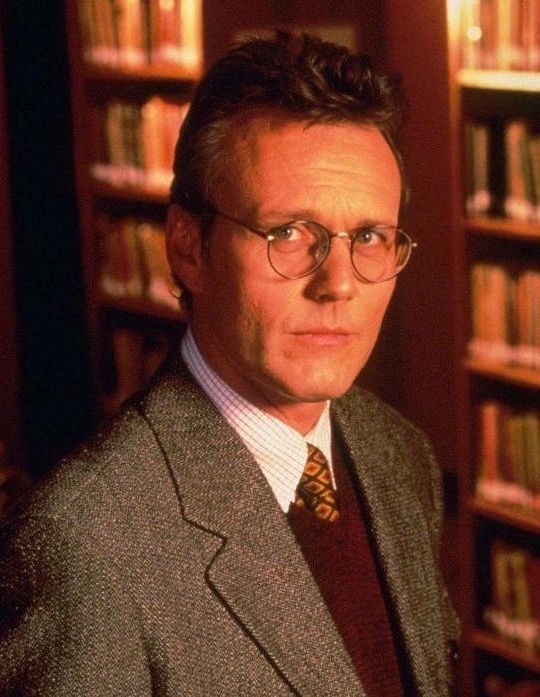
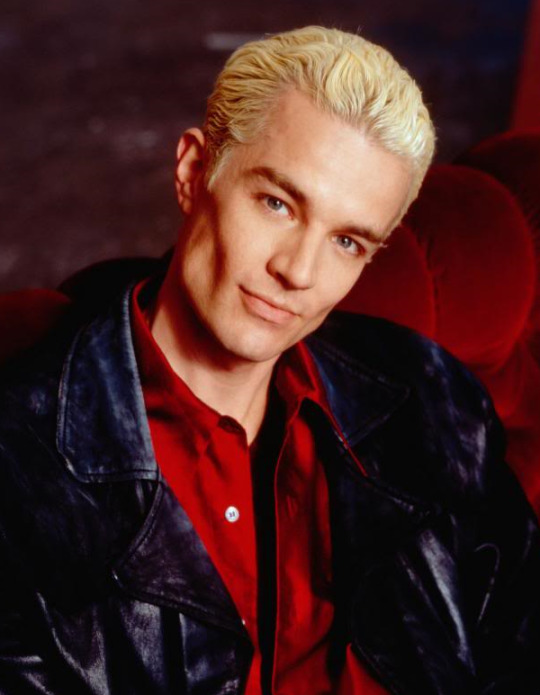
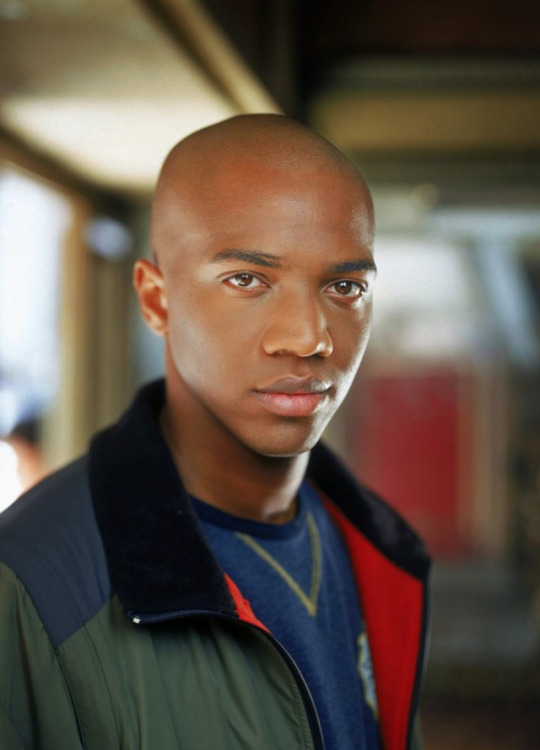
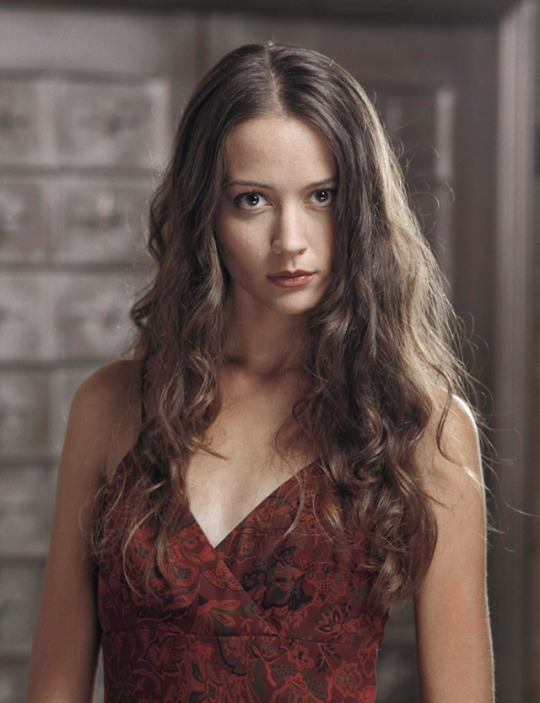
BUFFYVERSE (BUFFY THE VAMPIRE SLAYER + ANGEL)
Characters By Screen Time
Buffy Summers - 2630
Angel - 2008
Willow Rosenberg - 1258:15
Xander Harris - 1067:30
Cordelia Chase - 1038
Wesley Wyndham-Pryce - 840:15
Rupert Giles - 820:30
Spike - 760:30
Charles Gunn - 575:45
Winifred “Fred” Burkle - 480:15
Anya Jenkins - 379:15
Dawn Summers - 376:45
Lorne - 281:15
Faith Lehane - 256:15
Riley Finn - 241
Connor - 231:45
Tara Maclay - 211:30
Daniel “Oz” Osbourne - 181:15
Joyce Summers - 164:30
Darla - 154:45
Lilah Morgan - 153
Allen Francis Doyle - 132:30
Lindsey McDonald - 128:30
Harmony Kendall - 123
Andrew Wells - 122:45
Drusilla - 97
Det. Kate Lockley - 88:45
Jonathan Levinson - 79:15
Jenny Calendar - 65:45
Principal Robin Wood - 65:30
Warren Mears - 56
Illyria - 55
Kennedy - 54:30
Daniel Holtz - 51:30
The Groosalugg - 50:45
The First Evil - 50:15
Glory - 50:15
Mayor Richard Wilkins III - 44:30
Eve - 41:15
Jasmine - 41
Anne Steele - 38:45
Principal Snyder - 38:45
Gwen Raiden - 38
Amy Madison - 34:15
Justine Cooper - 32:15
Holland Manners - 30:15
Forrest Gates - 29:45
The Master - 27
Ben Wilkinson - 27
Kendra Young - 25
Nina Ash - 24:15
Adam - 22:30
Amanda - 22:30
Sahjhan - 22
Rebecca Lowell - 22
Skip - 21:30
Gavin Park - 21:15
Caleb - 21
Prof. Maggie Walsh - 20:45
Linwood Murrow - 20:30
Buffy-Bot - 20:30
Parker Abrams - 19:45
Bethany Chaulk - 19
Knox - 18:30
Ethan Rayne - 18:30
Graham Miller - 18:15
Sam Lawson - 18:15
Mr. Trick - 17:30
Virginia Bryce - 17:15
Halfrek - 16
Marcus Roscoe - 15:30
The Beast - 15
Rona - 15
Inca Mummy Girl - 15
Roger Wyndham-Pryce (doppleganger) - 14:30
Trish Burkle - 14:30
Roger Burkle - 14
Ted Buchanan - 13:45
Rondell - 13:30
Clem - 12:45
Vi - 12:45
Dana - 12:45
Quentin Travers - 12:30
Marcus Hamilton - 12:15
Billy “Ford” Fordham - 12:15
Jhiera - 12
Molly - 11:45
Holden Webster - 11:45
Veruca - 11:30
Numéro Cinco - 11:30
Barney - 11:15
Owen Thurman - 11
Melissa Burns - 10:45
Jinx - 10:30
Kathy Newman - 10:30
Judy Kovacs - 10:15
D’Hoffryn - 10
Merl - 10
April - 10
Gene Rainey - 10
Cassie Newton - 9:45
Trevor Lockley - 9:45
Tina - 9:45
Richard Straley - 9:30
Olaf - 9
Larry Blaisdell - 8:30
Gio - 8:30
Gwendolyn Post - 8:30
Katrina Silber - 8:15
Silas - 8:15
R.J. Brooks - 8:15
Willy the Snitch - 8
Cyvus Vail - 8
Alonna Gunn - 8
Harriet “Harry” Doyle - 8
Penn - 8
James - 8
Nancy - 8
Rack - 7:45
Samantha Finn - 7:45
Dracula - 7:45
Jack O’Toole - 7:45
Justin - 7:45
Landok - 7:30
Natalie French - 7:30
Collin, the Annointed One - 7:15
David Nabbit - 7:15
Luke - 7:15
Drogyn - 7:15
Jo - 7:15
Doc - 7
Scott Hope - 7
Marcus - 7
Dr. Ronald Meltzer - 7
Catherine Madison - 7
Lee Mercer - 6:45
Nathan Reed - 6:45
Murk - 6:45
Russell Winters - 6:45
Ryan Anderson - 6:45
Hank Summers - 6:30
James Stanley - 6:30
Billy Blim - 6:15
Shannon - 6:15
Paige Anderson - 6:15
General Gregor - 6:15
Debbie Foley - 6:15
Sweet - 6
Prof. Oliver Seidel - 6
Prima Ballerina - 6
Dr. Angelman - 6
Seth Anderson - 6
Magnus Bryce - 6
Sid - 6
Billy Palmer - 6
Grace Newman - 6
Archduke Sebassis - 5:45
Jesse - 5:45
Chloe - 5:45
Anne (William’s mum) - 5:45
Gage Petronzi - 5:45
Doris Kroeger - 5:45
Pete Clarner - 5:45
Chao-Ahn - 5:30
Dr. Kriegel - 5:30
Sheila Rosenberg - 5:30
The Valet - 5:30
Menlo - 5:30
Tom Warner - 5:30
Sunday - 5:30
Collins - 5:15
Spider Monster - 5:15
Razor - 5:15
The First Slayer - 5
Dr. Sparrow - 5
Wo-Pang - 5
Orlando - 5
Ken - 5
Kyle DuFours - 5
Rhonda Kelley - 5
Tor Hauer - 5
Heidi Barrie - 5
Chris Epps - 5
Coach Carl Marin - 5
Wilson Christopher - 5
T’ish Magev - 5
Lee DeMarco - 5
Zachary Kralik - 4:45
Lyle Gorch - 4:45
Mr. Maclay - 4:45
Vyassa - 4:45
Sam Ryan - 4:45
Jenoff - 4:45
Weatherby - 4:30
Cousin Beth - 4:30
Vanessa Brewer - 4:30
Daryl Epps - 4:30
Devon Macleish - 4:15
Principal Bob Flutie - 4:15
Lissa - 4:15
Nikki Wood - 4
Olivia - 4
Deputy Mayor Allen Finch - 4
Uncle Enyos - 4
Percy West - 4
Smith - 4
Maude Pearson - 4
Old Man (Hell’s Bells) - 4
Eric - 4
Morgan Shay - 4
Richard Anderson - 4
Vocah Demon - 4
M’Fashnik Demon - 4
Female Oracle - 4
The Judge - 3:45
Kit Holburn - 3:45
Caridad - 3:30
Whistler - 3:30
Gronx - 3:30
Cain - 3:30
Dante Chevalier - 3:30
Cameron Walker - 3:30
Zack - 3:30
Tony Harris - 3:15
Male Oracle - 3:15
Izzerial the Devil - 3:15
Dalton - 3:15
Janice - 3:15
Eddie - 3:15
Lorne’s Mother - 3
Senator Helen Brucker - 3
Liam’s Father - 3
Dreg - 3
Donny Maclay - 3
Balthazar - 3
Philip - 3
Lydia - 2:45
Nigel - 2:45
Hus - 2:45
Det. Stein - 2:45
Ed, Grand Potentate of the Fell Bretheren - 2:30
Sandy - 2:30
Lorraine Ross - 2:30
Kakistos - 2:15
Laurence - 2
Jessica Harris - 2
Teeth - 2
Merrick - 1
Numfar - 1
That’s a lot of damn characters. Counted by and rounded to the nearest quarter-minute.
69 notes
·
View notes
Text
Cartel leaders, terrorists, and traitors will be Julian Assange's fellow prisoners if federal prosecutors and intelligence chiefs have their way and he is incarcerated in America's most secure facility.
Once he arrives on U.S. soil after he's extradited, the Australian-born WikiLeaks founder, 47, is likely to a slew of charges — including espionage — that would land him in prison for life. If convicted of such serious charges, Assange would almost certainly end up at the Supermax facility known ADX Florence in Colorado, in part because intelligence officials believe he represents a grave threat to the U.S.
The United States Penitentiary Administrative Maximum Facility is home to the nation’s most infamous spies and double agents as well as foreign and domestic terrorists. Known as the “Alcatraz of the Rockies,” the Florence, Colo., maximum-security prison houses 388 male inmates whose escape is assessed as posing a serious threat to U.S. national security.
Prisoners there are under constant surveillance, kept in near-isolation, and are locked in soundproof cells for 23 hours each day.
Gun towers, razor wire, armed guards, and concrete walls ensure that once a prisoner goes in, he is cut off from the outside world. If Assange lands there, he would find himself living with a number of famous turncoats.
Several are doing time for spying for Russia. Robert Hanssen, a former FBI agent who spent the 1980s and 1990s spying for the Soviet Union and the Russian Federation, was sentenced to life in prison with no possibility of parole. Harold Nicholson, a former CIA officer recruited by Russian intelligence in the 1990s, was sentenced to decades in prison — and received an additional sentence after it was revealed he’d used his son to continue working with Russian intelligence even from behind bars.
Noshir Gowadia, who was sentenced to 30 years, was one of the engineers behind the stealth bomber and sold military secrets, including cruise missile technology, to China and others in the 2000s. Kendall Myers, a former State Department official who spied for Cuba, is serving a sentence of life without parole. When he had his wife, now freed, were convicted he told the judge: "Our overriding objective was to help the Cuban people defend their revolution. We share the ideals of the Cuban revolution."
Joaquín Archivaldo Guzmán Loera is the Mexican drug lord who headed the Sinaloa Cartel, named after the Mexican Pacific coast state of Sinaloa where it was formed. Known as "El Chapo Guzmán" for his short stature, he became Mexico's top drug kingpin in 2003.
Foreign terrorists include Zacarias Moussaoui, whom prosecutors tried to portray as the “20th hijacker” in the al Qaeda terrorist attacks on Sept. 11. Moussaoui is serving six life terms without parole, two more than Umar Abdulmutallab. Nicknamed the “Underwear Bomber,” Abdulmutallab is in ADX Florence for his efforts to take down an airplane on Christmas Day 2009.
Richard Reid, the British “Shoe Bomber” terrorist who tried to bring down an airline in 2001, is also there serving a life sentence.
The prison even has a cell block known as "Bombers Row," where Pakistani terrorist Ramzi Yousef, who helped carry out the 1993 World Trade Center bombing, is locked up alongside Americans such as "Unabomber" Ted Kaczynski, Oklahoma City bombing accomplice Terry Nichols, and Olympic Park bomber Eric Rudolph.
Not all of ADX Florence's residents are there for life. Dzhokhar Tsarnaev, who along with his now-deceased brother Tamerlan carried out the 2013 Boston Marathon bombings, awaits the death penalty.
The sole charge Assange currently faces carries only a maximum penalty of five years in prison. But that charge was likely brought simply to ensure his extradition from Britain, a key U.S. ally. The Department Of Justice alleges Assange conspired with former Army intelligence analyst Chelsea Manning in cracking a password stored on U.S. Department of Defense computers, which allowed Manning to access secret documents.
Manning turned over those documents to WikiLeaks, which released hundreds of thousands of classified Iraq War combat reports, Guantanamo Bay detainee briefs, and State Department cables.
Charles Stimson, who oversaw the detention of alleged terrorists during his tenure as the deputy assistant secretary of defense for detainee affairs in the Bush administration,, was confident that Assange would face additional counts. “I’m sure there will be superseding indictments. There’s no doubt in my mind as a prosecutor," he said. "They might have a superseding indictment that’s sealed already.”
If Assange is only convicted on the single count, he will likely be sentenced to the full five years. A similar 2016 case centered around Justin Liverman, a hacker who conspired with hacking group Crackas With Attitude to gain unauthorized access to former CIA Director John Brennan’s electronic communications and, later, to a confidential law enforcement database.
Like Assange, Liverman didn’t do the hacking himself but encouraged it — and he got the maximum sentence of five years in 2017. Liverman’s initial indictment was sealed in the Eastern District Court of Virginia, just like Assange’s. Liverman is doing his time at Fort Dix in New Jersey.
Few prisoners are released from the Supermax. One of those who did was Travis Dusenbury, who spent 10 years inside. Recalling his experience in 2016, he said: "You’re just shut off the world. You feel it. It sinks in, this dread feeling. ... It’s just the harshest place you’ve ever seen. Nothing living, not so much as a blade of grass anywhere."
#jahar tsarnaev#dzhokhar tsarnaev#julian assange#richard reid#ted kaczynski#unabomber#tamerlan tsarnaev
6 notes
·
View notes
Text
Federal Judge Virginia Kendall publishes opinion based on Healthcare fraud Case I argued before US Federal Court
Federal Judge Virginia Kendall publishes opinion based on Healthcare fraud Case I argued before US Federal Court is courtesy of: The Law Office of Purav Bhatt Criminal Law Blog
Federal Judge Virginia Kendall publishes opinion based on Healthcare fraud Case I argued before the Northern District of Illinois Federal Court.
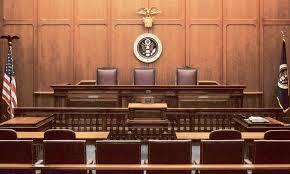
See the opinion below....
U.S. v. FERRELL
NO. 11 CR 595.
UNITED STATES OF AMERICA, Plaintiff,
v.
KEENAN FERRELL, Defendant.
United States District Court, N.D. Illinois, Eastern Division.
May 14, 2014.
Keenan R. Ferrell, Defendant, represented by Joshua B. Adams, Law Offices of Joshua B. Adams, PC & Purav Bhatt, Law Offices of Purav Bhatt.
Bryce Woods, Defendant, represented by <att_name>Gerardo Solon Gutierrez.
USA, Plaintiff, represented by Paul H. Tzur, United States Attorney's Office & Andrew R DeVooght, United States Attorney's Office.
MEMORANDUM OPINION AND ORDER
VIRGINIA M. KENDALL, District Judge.
A jury found Keenan Ferrell guilty of six counts of health care fraud. (Dkt. No. 169.) The nine-count indictment alleged that Ferrell and Bryce Woods submitted false claims for psychotherapy services purportedly rendered by Ferrell. (Dkt. No. 1.) The Government dismissed counts five, six, and seven prior to trial. (Dkt. No. 154.) The jury returned a verdict of guilty as to the remaining six counts against Ferrell. Ferrell now moves for judgment of acquittal under Fed. R. Crim. P. 29 based on an evidentiary ruling that excluded a voicemail Ferrell sought to introduce into evidence. Ferrell also moves for a new trial under Fed. R. Crim. P. 33 based on inaccurate evidence presented to the jury. According to Ferrell, this evidence denied him a fair trial. For the reasons stated herein, this Court denies Ferrell's motions.
I. THE RECORD CONTAINED SUFFICIENT EVIDENCE TO SUPPORT OF THE JURY'S VERDICT
A motion for judgment of acquittal challenges the sufficiency of the evidence against a defendant. Fed. R. Crim. P. 29. "A defendant who makes an insufficient evidence claim `faces a nearly insurmountable hurdle.'" United States v. Tucker, 737 F.3d 1090, 1092 (7th Cir. 2013) (citing United States v. Morris, 576 F.3d 661, 666 (7th Cir. 2009) (quoting United States v. Pulido, 69 F.3d 192, 205 (7th Cir. 1995))). When considering a motion for judgment of acquittal, a court must view all facts in the light most favorable to the government and ask "whether the record contained sufficient evidence from which the jury could reasonably find the defendant guilty beyond a reasonable doubt." United States v. Swan, 486 F.3d 260, 266 (7th Cir. 2007).
To prove that Ferrell committed health care fraud, the Government had to show that there was a scheme to defraud a health care benefit program, that Ferrell knowingly and willfully executed that scheme with respect to each count, and that he acted with intent to defraud. See 18 U.S.C. § 1347(a); see also United States v. Chhibber, 741 F.3d 852, 858-59 (7th Cir. 2014) (discussing 18 U.S.C. § 1347(a)) and United States v. Natale, 719 F.3d 719, 739-41 (explaining that health care fraud statutes require an intent to deceive). Here, Ferrell does not argue that the evidence was insufficient as to any of these elements. Even if he tried to do so, that argument would fail. The Government presented evidence that Ferrell certified that he would learn and abide by Medicare's rules when he applied for Medicare billing privileges. (See, e.g.,Trial Tr. at 156:4-17.) The Government also presented evidence that Ferrell made money by billing Medicare for services provided to nursing home patients by his students and others. (See, e.g., id. at 760:9-19.) Finally, the Government presented evidence that Ferrell billed Medicare for services provided to deceased patients. (See, e.g., id. at 809:18-22.) The evidence presented, viewed in the light most favorable to the Government, was sufficient to support the jury's verdict.
Instead of identifying any evidentiary shortcomings, Ferrell challenged this Court's prior evidentiary ruling concerning a voicemail from William Woods. Even if this Court were to reconsider its evidentiary ruling, which is essentially what Ferrell seeks, Ferrell does not identify any newly discovered evidence or manifest errors of law or fact. Instead, he simply rehashes arguments made in his motion in limine to admit the voice message. (Compare Dkt. No. 177 at 3-5 with Dkt. No. 107.) This Court previously addressed Ferrell's arguments when it granted the Government's motion to exclude the voicemail and denied Ferrell's motion to admit it. (Dkt. No. 151 at 10-13.) In short, there is no dispute as to whether the voicemail is hearsay and the voicemail is not subject to the statement against interest exception because it did not contain statements against the declarant's interest nor did it have corroborating circumstances to support its trustworthiness. (Id.)
Because Ferrell has not met his burden with respect to his challenge to the sufficiency of the evidence, this Court denies his motion for judgment of acquittal.
II. THE INTERESTS OF JUSTICE DO NOT REQUIRE A NEW TRIAL BECAUSE THERE WAS NO PREJUDICIAL EFFECT ON THE JURY
A court may vacate a judgment and grant a new trial where the interests of justice so require. Fed. R. Crim. P. 33(a). "A defendant is entitled to a new trial if there is a reasonable possibility that a trial error had a prejudicial effect upon the jury's verdict." United States v. VanEvl, 468 F.3d 428, 436 (7th Cir. 2006). Here, Ferrell claims that an error concerning the death of at least one and as many as five patients prejudiced the jury. The Government presented evidence that Ferrell billed Medicare for services provided to seventeen purportedly deceased patients. During trial, the Government learned from counsel for Ferrell's co-defendant that one of the seventeen purportedly deceased patients was still alive. The Government then reduced the number of deceased patients that Ferrell allegedly billed Medicare for to twelve, which matched the number of death certificates produced during discovery and admitted into evidence during trial. The Government recalled the witness who had previously testified about the deceased patients and she explained the error. (Trial Tr. 921:20-923:15.)
Ferrell's counsel cross-examined the witness on the deceased patients. And Ferrell's counsel referred to the Government's error regarding the number of deceased patients throughout his closing argument. Such opportunities, to cross-examine and to argue, are key to a fair trial. See Gen. Elec. Capital Corp. v. Lease Resolution Corp., 128 F.3d 1074, 1083 (7th Cir. 1997) ("The key to a fair trial is opportunity to use the appropriate weapons (rebuttal evidence, cross-examination, and argument) to meet adverse materials that come to the tribunal's attention." (citation and quotation omitted).) Because the Government's witness admitted her error, corrected it, and was subject to cross-examination on it, there is no reasonable possibility that the error concerning the number of deceased patients improperly influenced the jury. Closing arguments ensured as much, as Ferrell's counsel told the jury about the Government's error:
Mistakes happened in this case. You heard about it yesterday. The government made a mistake in the evidence submitted to you. On Friday they were convinced about this chart. They were convinced Dr. Ferrell billed someone who was dead since 1992, 125 times. What did we find out Monday. They were wrong. And they made a mistake.And Ladies and Gentlemen, if they're wrong about that, then they're wrong about everything else. You have to question every piece of evidence the government has shown you.(Trial Tr. 1025:3-13.) Given the testimony concerning the corrected number of deceased patients, the revised exhibits admitted into evidence, and the efforts by Ferrell's counsel to capitalize on the Government's error, this Court finds that Ferrell received a fair trial.
More importantly, the jury heard evidence that Ferrell billed Medicare for services provided to twelve deceased patients whose deaths were confirmed by death certificates. This evidence mitigates the Government's error concerning the other five patients. This is not a case where the only evidence the Government presented concerning Ferrell billing Medicare for services provided to deceased patients was inaccurate. Rather, only a portion of the evidence presented by the Government was in error. The twelve patients whose deaths were confirmed by death certificates mitigated any prejudicial effect that the Government's error may have caused. For this reason, and because the jury knew of the Government's error, had the opportunity to assess the credibility of a witness concerning that error, and heard argument concerning that error, this Court denies Ferrell's motion for a new trial.
CONCLUSION
For the reasons stated herein, this Court denies Ferrell's motion for judgment of acquittal and his motion for a new trial.
http://leagle.com/decision/In%20FDCO%2020140515A28.xml/U.S.%20v.%20Ferrell
Federal Judge Virginia Kendall publishes opinion based on Healthcare fraud Case I argued before US Federal Court was first seen on: https://pninjurylaw.com/
0 notes
Text
Juicy Smolliét aka Jussie Smollett Gets His Lawsuit Tossed By Chicago Judge
Source: Nuccio DiNuzzo / Getty
It’s been a minute since the “assault” on Jussie Smollett‘s has been outed as an allegedly staged event to keep him from being let go from the hit series Empire, but even though most people believe that Jussie indeed set himself up for the sake of his career, he continued to fight to have his name cleared. Once again, he failed.
According to Deadline, Smollett suffered a deathblow in court as US District Court Judge Virginia Kendall threw out his lawsuit against the city of Chicago of malicious prosecution stating that the case cannot move forward. The judge overseeing the case did rule that the Empire actor can refile his claim if “he’s found not guilty in his upcoming trial on his original charges of fabricating a racially charged assault.”
Um, good luck with that.
Now that his lawsuit has been thrown out, Smollett can focus on fighting the case that lays before him due to his dodging charges for his original sin.
A grand jury in February re-indicted Smollet on charges he staged a hate crime. Special prosecutor Dan Webb pushed for the charges after Smollett’s original 16 counts were dropped by prosecutors, a move that caused outrage in some quarters.
Webb filed a new six-count indictment against the former Empire star in February. Smollett has pleaded not guilty.
Yeah, it’s looking for for Jussie Smollett these days, b. With his “attackers” basically copping to the scheme and whatnot, it seems like Jussie is bound to take a monumental L on this one.
source https://hiphopwired.com/856495/juicy-smolliet-aka-jussie-smollett-gets-his-lawsuit-tossed-by-chicago-judge/
0 notes
Text
A federal judge in Chicago has denied a motion seeking a temporary restraining order and preliminary injunction to block Illinois’ assault weapons ban and a similar ordinance in Naperville.
U.S. District Judge Virginia Kendall ruled Friday that the Illinois and Naperville bans on selling assault weapons are “constitutionally sound.”
Lawyers for the National Association for Gun Rights and Robert Bevis, who owns a gun store in Naperville, had sought the court orders in a lawsuit to stop the bans.
As is now common in such cases, they argued that it’s “impossible” for the new state gun law and a similar Naperville ordinance to meet the requirements for such laws that were set out in the landmark U.S. Supreme Court case last summer known as New York State Rifle & Pistol Association v. Bruen.
The Supreme Court ruled in that case that governments must show that gun regulations are “consistent with the nation’s historical tradition of firearm regulation.”
In her ruling, Kendall wrote that the Illinois and Naperville bans meet that burden: “Because assault weapons are particularly dangerous weapons and high-capacity magazines are particularly dangerous weapon accessories, their regulation accords with history and tradition. Naperville and Illinois lawfully exercised their authority to control their possession, transfer, sale, and manufacture by enacting a ban on commercial sales.”
While the lawsuit is one of a number of challenges facing Illinois’ ban, Kendall’s decision appears to be the first from a federal judge considering whether the ban meets the standard set out by the Supreme Court last year.
In that ruling, whose majority opinion was written by Justice Clarence Thomas, restrictions on weapons must be limited to dangerous and unusual arms that aren’t commonly used.
The weapons banned by the Illinois law are “unquestionably” in common use, the lawyers for the National Association for Gun Rights argued.
“An arm that is in common use for lawful purposes is, by definition, not unusual,” the lawyers wrote. “Such an arm therefore cannot be both dangerous and unusual and therefore cannot be … subjected to a blanket ban.”
Kendall ruled that the government can regulate highly dangerous arms, including assault weapons and large-capacity magazines, that pose an unusual risk that can cause greater harm and more deaths.
“The text of the Second Amendment is limited to only certain arms, and history and tradition demonstrate that particularly ‘dangerous’ weapons are unprotected,” the judge wrote.
Assault weapons are also not commonly used for self-defense, Kendall wrote, and gun owners have many other firearms they could use for protection. The judge said the request to block the bans didn’t demonstrate that failing to do so would cause irreparable harm to those suing.
“Bevis has not furnished any evidence that he will lose substantial sales, and he can still sell almost any other type of gun,” Kendall wrote. “While a high number of assault weapons are in circulation, only 5% of firearms are assault weapons.”
Kendall also ruled that the state and Naperville have a more compelling argument for protecting the public interest than Bevis and the National Association for Gun Rights.
“On the one hand, they suffer an alleged deprivation of a constitutional right,” the Judge wrote. “Again, though, the financial burden and loss of access to effective firearms would be minimal. On the other side, Illinois and Naperville compellingly argue their laws protect public safety by removing particularly dangerous weapons from circulation.”
The plaintiffs filed suit last year after Naperville passed its ban, then added the state to the case after Gov. J.B. Pritzker signed into law the statewide assault weapons ban.
The state law — which is now on hold in some parts of Illinois as a result of a separate lawsuit — bans the sale of assault weapons and caps the purchase of magazines at 10 rounds for long guns and 15 for handguns. It also makes rapid-fire devices known as switches illegal because they turn firearms into fully automatic weapons. Anyone who already owns the banned guns is allowed to keep them but required to register them with the Illinois State Police by Jan. 1.
Earlier this month, a state court judge in southern Illinois blocked enforcement of the assault-weapons ban against 865 gun owners and one firearms store owner who filed a lawsuit challenging the law.
#us politics#news#chicago sun times#illinois#Naperville#gun rights#gun control#gun violence#mass shooters#mass shootings#2nd amendment#Judge Virginia Kendall#assault weapons ban#high capacity magazine ban#National Association for Gun Rights#Robert Bevis#gov. j.b. pritzker#new york state rifle & pistol association v. bruen#us supreme court#scotus#justice clarence thomas#2023
7 notes
·
View notes
Text
After five weeks of testimony that included nearly 40 witnesses, more than 100 secret recordings, two COVID-related delays and about 16 hours of closing arguments, the jury in the historic corruption trial of former Chicago Ald. Edward Burke is expected to finally begin deliberating the case on Monday.
Before the jury of nine women and three men retires to the jury room, however, they must first be instructed on the law by U.S. District Judge Virginia Kendall, who will read aloud about 350 pages of jury instructions compiled by both sides over the past several weeks.
For the record, that’s longer than the 310 pages of Burke’s 1996 book “Inside the Wigwam,” a history of national political conventions held in Chicago, which was referenced several times during the trial.
Once the jury begins deliberating, they’ll elect a foreperson and go about sorting through the 19 counts in the case, which include 14 counts against Burke and a combination of other charges involving his two co-defendants, longtime ward aide Peter Andrews Jr. and real estate developer Charles Cui.
Though tedious, the legal instructions will be crucial in determining how the panel reaches its verdict, including making findings on everything from what constitutes official misconduct to whether Burke and his co-defendants acted “knowingly” when committing certain acts.
After three days of closing arguments wrapped last week, U.S. District Judge Virginia Kendall sent the jury home for the weekend. With Christmas week looming, Kendall told the panel they should not feel rushed in their discussions, particularly after a six-week trial, so if there is no verdict by Friday, they would not come back until after the New Year.
“I don’t want you to think I’m going to be Scrooge if you want to take a long time,” the judge said. “I’m not going to make you sit Christmas week. I don’t want anybody to be stressed that you can’t be with your families.”
Burke, 79, who served 54 years as alderman before leaving the City Council in May, is charged with 14 counts including racketeering, federal program bribery, attempted extortion, conspiracy to commit extortion and using interstate commerce to facilitate an unlawful activity.
Andrews, 74, is charged with one count of attempted extortion, one count of conspiracy to commit extortion, two counts of using interstate commerce to facilitate an unlawful activity and one count of making a false statement to the FBI.
Cui, 52, is facing counts of federal program bribery, using interstate commerce to facilitate an unlawful activity and making false statements to the FBI.
The racketeering charge alleges Burke used his significant City Hall power to try to get business for his private law firm from developers, including the New York-based team tackling the $600 million renovation of the Old Post Office.
The indictment alleges Burke and Andrews conspired to extort the Texas-based owners of a Burger King in his Southwest Side 14th Ward, and in a separate scheme, Cui is accused of hiring Burke’s firm, Klafter & Burke, because he was desperate to win a pole sign permit for a Binny’s Beverage Depot in Portage Park.
Burke is also accused of threatening to block an admission fee increase at the Field Museum to retaliate against officials who failed to give a paid internship to a daughter of one of his longtime City Council allies.
At heart of the case were more dozens of wiretapped phone calls and secretly recorded meetings made by Daniel Solis, the former 25th Ward alderman who turned FBI mole after being confronted in 2016 with his own wrongdoing.
In closing arguments last week, prosecutors put up on large video screens a series of now-notorious statements made by Burke on the recordings. Among them: “The cash register has not rung yet,” “They can go (expletive) themselves,” and “Did we land the tuna?”
Assistant U.S Attorney Sarah Streicker told the jury that Burke’s words were their ticket into his real frame of mind.
Burke’s attorneys, meanwhile, argued that the entire case is the product of overzealous government agents and their puppet, Solis, whom even prosecutors did not trust enough to put on the witness stand themselves. Instead, he was called by the defense and grilled about his motivations.
“The fact alone that they didn’t call Danny Solis in their case creates a reasonable doubt,” Burke attorney Joseph Duffy said. “Why did we have to bring Danny Solis in here? That should give you pause, the fact that they ran an investigation on Mr. Burke for 30 months with a star witness Danny Solis undercover and they didn’t have the decency to bring him here.”
3 notes
·
View notes
Text
Find Out Yourself
Characters: Spencer Reid x Reader, Derek Morgan, Emily Prentiss, minor characters
Word Count: 1,108
Warnings: fluff
Summary: After coming back to the BAU from your year-long travels, Spencer takes notice something you did often while away. Then his imagination begins to wander...
Author’s Note: This is the July 29th fic “Tan” for the 30 Day Writing Challenge. If you have any requests, please send them in! this is unbeta’d and every mistake is all on me.
Feedback the glue that holds my writing together
Tags at the bottom

The last year has been probably one of the best years of your life. You got to travel for work, spend time tanning at the beach, solved crimes for different divisions around the world, but the one thing you missed dearly was your best friend, Spencer Reid. It was hard not seeing his face every day since you’ve grown feelings for him. Sure, you two talked whenever you could, but with the time differences, it was hard to find the perfect time to sit down and really talk.
Even though the last year has been great, it was coming to an end, and you were on a plane back to the BAU in Virginia for good. Traveling and being with other divisions were great, but you told Hotch not to send you out anymore since you really wanted to stick with the BAU for a while. He understood since you’ve been with them for nearly ten years so he understood why it was hard to be away from everyone, especially Spencer.
Everyone knew of your feelings for him and his for you. They could see it in the way Spencer’s eyes lit up when he gets a call from you, the way he speaks about you when you’re not in the room, how they all knew you would have more gifts for Spencer than everyone else, and how much you spent time together. Hotch put you and Spencer together almost always because he knew how well you two worked with each other. He didn’t want that going away, and it seemed to be a good thing for the team so he let it run by itself.
Maybe coming back from a year-long trip might be enough for either one of you to confess. If you looked at yourself from a year ago, you wouldn’t see the delicious new tan you’ve acquired in many different countries. Your hair was brighter and longer, your skin was smoother and looked younger, and you may as well be a whole new person to someone who hasn’t seen you in so long. The team at the BAU will definitely be surprised at the new look you’re sporting.
As soon as you landed, you easily found the car that Hotch sent to you so that you could drive to the office. They would have met you at the gate, but they were currently on a case, so you understood why he only sent a car. The drive from the airport to the office was long, but you finally made it. Judging by the cars in the parking lot, the team was currently inside the office, but you didn't know how long they’ve been there. If they had just gotten back from a long case, then they would be all exhausted to make proper greetings, but you at least wanted to see them. Making your way up to the office, the first person you saw was Derek who was talking to Emily as they held their things in their hands.
“Miss me?” you grinned as you opened the door. Both heads turned to you, and they smiled as they made their way over to you.
“You look great!” Emily grinned as she hugged you tightly.
“Damn, Y/N, time away did wonders to your body. You look like a whole new person,” Derek joked as he gave you your second hug.
“Did I hear Y/N’s name?” Penelope asked as she rushed out of her office. Once you two made eye contact, she squealed loud enough to cause Rossi, Hotch, and JJ out of their offices, and Spencer out of the break room. When he first made eye contact with your body, his eyes widened. He hasn’t seen you in a year, and even though you sent pictures, it doesn’t compare to having you here in person. Everyone from the team greeted you with smiles and hugs while Spencer hung back so his greeting could be a bit more personal than the others.
“Where’s Spencer? Tell me he didn't already leave for the night,” you asked, not having seen him yet.
“Right here,” he said from behind you. Turning around, you couldn’t help but take off to him as your body was craving any kind of touch he was able to provide. His arms caught you as you jumped into his arms, a big smile on your face.
“I missed you so much,” you whispered.
“I missed you too. Probably more,” he chuckled truthfully.
“I doubt that,” you said as you pulled away from him.
“Look at how much they love each other,” Emily whispered to JJ.
“I know. Come on, we can talk to her later. Let’s give them some privacy,” she said as the rest of the team dispersed back to where they came from.
“I can’t wait to hear what you’ve done this past year.”
“I can’t wait to tell you. I have gifts for everyone as well and don’t tell the others, but I have more for you,” you giggled. As you pulled your body away from his, the thin straps of your shirt fell down which exposed your shoulder and the fact that you didn’t have any tan lines. That sight alone brought many different images to Spencer’s mind about why you don’t have tan lines.
“You got tan,” he observed as you pulled up your sleeves.
“I did.”
“You don’t have any tan lines.”
“Is there a question in there, Dr. Reid?”
“N-No. I would just expect tan lines.”
“You know, there are ways to tan without getting the lines. Do you know how Doctor?” you flirted as you pulled your purse closer to your body.
“Yeah, I do,” he whispered.
“If you’re wondering if there are tan lines on my body in places you can’t see, well, I would just have to tell you to find out for yourself. Get where I’m going with this, Dr. Reid?” you grinned as you turned around and walked away from him. He was contemplating your sincere offer of having him stay the night, and when he made eye contact with Derek from across the room, his friend gave him a single nod which was enough for the young genius. He quickly picked up his messenger bag before quickly following you to the elevator.
“Wait up,” he said as you held the doors open.
“Good choice Spencer,” you grinned as they closed.
“Are there r-really no tan lines on your body?”
“Why? You like to picture me tanning naked?” you laughed.
“N-no, I just meant--”
“Spencer, I was teasing you. And like I said before, you’ll just have to find out for yourself.”

wanna be tagged? add yourself to this document! if your tag doesn’t work, find out why!
@adlerorzel-blog @kendall-michele @megsyrae @bitchwhytho @lucipie666 @kt-bug3 @tc5322 @practicallylivesonline @cynbx @cobrakai1967 @reid-187 @mbmrocks
#30 days of writing challenge#criminal minds#spencer reid#spencer reid fanfiction#spencer reid x reader#spencer reid fanfic#spencer reid fic#spencer reid fan fiction#spencer reid fiction#spencer reid fan fic#reid x reader#reid fanfic#reid fic#reid fiction#reid fanfiction#reid fan fic#criminal minds fic#criminal minds fan fiction#criminal minds fiction#criminal minds fanfiction#criminal minds fanfic#criminal minds fan fic#cm#cm fic#cm fiction#cm fanfiction#cm fan fiction#cm fanfic#cm fan fic
77 notes
·
View notes
Link
British stock trader Navinder Sarao was accused of helping cause a $1 trillion stock market crash in 2010. But the rest of his story is now being told in a new book titled Flash Crash: A Trading Savant, a Global Manhunt, and the Most Mysterious Market Crash in History. "I think that he was a gamer and, for him, markets were honestly the ultimate form of game," author Liam Vaughan tells the New York Post: Sarao was more concerned with the rise of high-frequency trading, a method of buying and selling that used powerful computers and algorithms to execute trades in fractions of seconds. The speed allowed (mostly) large, monied firms to beat others to a trade, thereby securing a better price. Sarao bristled at the unfairness. He began engaging in what is known as "spoofing." He hired software developers to write programs that would allow him to place millions of dollars worth of orders, then — after other traders had reacted to his potential trade — abruptly cancel his order. The deception allowed Sarao to nudge the market higher or lower and reap the benefits. His trading habits eventually drew scrutiny from the Chicago Mercantile Exchange, earning him cautionary letters. Sarao, however, phoned the authorities and told them to "kiss my ass." Then on May 6, 2010, Sarao logged on from his bedroom and began furiously trading, attempting to capitalize on the volatility still roiling the markets after the 2008 crisis. In the final two hours before he logged off at 7:40 p.m. London time, the trader had bought and sold 62,077 e-mini contracts — with a combined value of $3.4 billion. A minute later, markets tumbled with a "velocity and intensity it never had before," Vaughan writes... Sarao was later arrested and extradited to the United States, only the second person ever charged with spoofing. It's unclear how much his actions contributed to America's so-called "flash crash." The US government contends that he was partially responsible, while some financial experts disagree, seeing him as a Robin Hood whose actions only hurt wealthy companies. But whatever happened to Sarao? The Post writes that he cooperated with authorities, and the answer ultimately came quietly in January, reports CNBC: Despite facing as much as eight years in prison, Federal Judge Virginia Kendall sentenced Sarao — who suffers from severe Asperger's — to just one year of supervised release. Court documents submitted by Sarao's legal team described him as a "singularly sunny, childlike, guileless, trusting person," who lived off social security payments and played hour after hour of video games in his childhood bedroom. Sarao, who spent four months in the U.K.'s Wandsworth Prison before his extradition to the United States, has forfeited about $7.6 million in gains made from trading. U.S. authorities claimed Sarao made more than $70 million between 2009 and 2014 from his bedroom — much of it legal. However, it has been reported that he has lost almost all of his money after investing in fraudulent scams. "I think justice was done," the new book's author tells the Post, "because the message was out there that someone shouldn't be thinking about doing what Nav was doing."


Read more of this story at Slashdot.
from Slashdot https://ift.tt/3dBWBBf
0 notes
Link
Jussie Smollett’s counter-suit against the Chicago Police Department for “malicious prosecution” was thrown out by a federal judge on Wednesday on the grounds that the Empire actor lacks the standing to counter-sue while he has outstanding proceedings against him.U.S. District Judge Virginia Kendall also said in her ruling that the police acted properly considering they “had probable cause” to believe that Smollett had staged the alleged hate crime.Smollett is currently facing a six-count felony indictment for allegedly making false statements to the police about a racist, homophobic crime that a grand jury assessed he orchestrated against himself in January 2019.After Cook County State Attorney Kim Foxx dropped the charges against the actor, citing the technically victimless nature of the hoax and his record of service to the community, Special prosecutor Dan Webb filed the new charges in February, after an investigation that began in August.The city of Chicago then filed a civil lawsuit against Smollett, attempting to recover $130,106 from the Empire actor for the costs of investigating the staged crime, which remains ongoing.In November, Smollett’s lawyers asserted in a counterclaim that the city was pursuing a “malicious prosecution,” causing “humiliation, mental anguish and extreme emotional distress,” for Smollett. It also argued that because he had paid $10,000 to the city “as payment in full in connection with the dismissal of the charges against him” there was no need for further penalties.Smollett, who pleaded not guilty to the felony charges and was released on bond in February, is prepared to go to trial, according to his lawyers.“It’s very frustrating, especially when you see what the law says and you see the actions that were taken that were contrary to the law, so we’re optimistic that the higher court will reverse this,” They said in February, adding that Smollett’s “primary concern was moving on.”
from Yahoo News - Latest News & Headlines https://ift.tt/3bATN79
0 notes
Text
Federal Judge Virginia Kendall publishes opinion based on Healthcare fraud Case I argued before US Federal Court
The blog post Federal Judge Virginia Kendall publishes opinion based on Healthcare fraud Case I argued before US Federal Court is available on: The Law Office of Purav Bhatt
Federal Judge Virginia Kendall publishes opinion based on Healthcare fraud Case I argued before the Northern District of Illinois Federal Court.

See the opinion below....
U.S. v. FERRELL
NO. 11 CR 595.
UNITED STATES OF AMERICA, Plaintiff,
v.
KEENAN FERRELL, Defendant.
United States District Court, N.D. Illinois, Eastern Division.
May 14, 2014.
Keenan R. Ferrell, Defendant, represented by Joshua B. Adams, Law Offices of Joshua B. Adams, PC & Purav Bhatt, Law Offices of Purav Bhatt.
Bryce Woods, Defendant, represented by <att_name>Gerardo Solon Gutierrez.
USA, Plaintiff, represented by Paul H. Tzur, United States Attorney's Office & Andrew R DeVooght, United States Attorney's Office.
MEMORANDUM OPINION AND ORDER
VIRGINIA M. KENDALL, District Judge.
A jury found Keenan Ferrell guilty of six counts of health care fraud. (Dkt. No. 169.) The nine-count indictment alleged that Ferrell and Bryce Woods submitted false claims for psychotherapy services purportedly rendered by Ferrell. (Dkt. No. 1.) The Government dismissed counts five, six, and seven prior to trial. (Dkt. No. 154.) The jury returned a verdict of guilty as to the remaining six counts against Ferrell. Ferrell now moves for judgment of acquittal under Fed. R. Crim. P. 29 based on an evidentiary ruling that excluded a voicemail Ferrell sought to introduce into evidence. Ferrell also moves for a new trial under Fed. R. Crim. P. 33 based on inaccurate evidence presented to the jury. According to Ferrell, this evidence denied him a fair trial. For the reasons stated herein, this Court denies Ferrell's motions.
I. THE RECORD CONTAINED SUFFICIENT EVIDENCE TO SUPPORT OF THE JURY'S VERDICT
A motion for judgment of acquittal challenges the sufficiency of the evidence against a defendant. Fed. R. Crim. P. 29. "A defendant who makes an insufficient evidence claim `faces a nearly insurmountable hurdle.'" United States v. Tucker, 737 F.3d 1090, 1092 (7th Cir. 2013) (citing United States v. Morris, 576 F.3d 661, 666 (7th Cir. 2009) (quoting United States v. Pulido, 69 F.3d 192, 205 (7th Cir. 1995))). When considering a motion for judgment of acquittal, a court must view all facts in the light most favorable to the government and ask "whether the record contained sufficient evidence from which the jury could reasonably find the defendant guilty beyond a reasonable doubt." United States v. Swan, 486 F.3d 260, 266 (7th Cir. 2007).
To prove that Ferrell committed health care fraud, the Government had to show that there was a scheme to defraud a health care benefit program, that Ferrell knowingly and willfully executed that scheme with respect to each count, and that he acted with intent to defraud. See 18 U.S.C. § 1347(a); see also United States v. Chhibber, 741 F.3d 852, 858-59 (7th Cir. 2014) (discussing 18 U.S.C. § 1347(a)) and United States v. Natale, 719 F.3d 719, 739-41 (explaining that health care fraud statutes require an intent to deceive). Here, Ferrell does not argue that the evidence was insufficient as to any of these elements. Even if he tried to do so, that argument would fail. The Government presented evidence that Ferrell certified that he would learn and abide by Medicare's rules when he applied for Medicare billing privileges. (See, e.g.,Trial Tr. at 156:4-17.) The Government also presented evidence that Ferrell made money by billing Medicare for services provided to nursing home patients by his students and others. (See, e.g., id. at 760:9-19.) Finally, the Government presented evidence that Ferrell billed Medicare for services provided to deceased patients. (See, e.g., id. at 809:18-22.) The evidence presented, viewed in the light most favorable to the Government, was sufficient to support the jury's verdict.
Instead of identifying any evidentiary shortcomings, Ferrell challenged this Court's prior evidentiary ruling concerning a voicemail from William Woods. Even if this Court were to reconsider its evidentiary ruling, which is essentially what Ferrell seeks, Ferrell does not identify any newly discovered evidence or manifest errors of law or fact. Instead, he simply rehashes arguments made in his motion in limine to admit the voice message. (Compare Dkt. No. 177 at 3-5 with Dkt. No. 107.) This Court previously addressed Ferrell's arguments when it granted the Government's motion to exclude the voicemail and denied Ferrell's motion to admit it. (Dkt. No. 151 at 10-13.) In short, there is no dispute as to whether the voicemail is hearsay and the voicemail is not subject to the statement against interest exception because it did not contain statements against the declarant's interest nor did it have corroborating circumstances to support its trustworthiness. (Id.)
Because Ferrell has not met his burden with respect to his challenge to the sufficiency of the evidence, this Court denies his motion for judgment of acquittal.
II. THE INTERESTS OF JUSTICE DO NOT REQUIRE A NEW TRIAL BECAUSE THERE WAS NO PREJUDICIAL EFFECT ON THE JURY
A court may vacate a judgment and grant a new trial where the interests of justice so require. Fed. R. Crim. P. 33(a). "A defendant is entitled to a new trial if there is a reasonable possibility that a trial error had a prejudicial effect upon the jury's verdict." United States v. VanEvl, 468 F.3d 428, 436 (7th Cir. 2006). Here, Ferrell claims that an error concerning the death of at least one and as many as five patients prejudiced the jury. The Government presented evidence that Ferrell billed Medicare for services provided to seventeen purportedly deceased patients. During trial, the Government learned from counsel for Ferrell's co-defendant that one of the seventeen purportedly deceased patients was still alive. The Government then reduced the number of deceased patients that Ferrell allegedly billed Medicare for to twelve, which matched the number of death certificates produced during discovery and admitted into evidence during trial. The Government recalled the witness who had previously testified about the deceased patients and she explained the error. (Trial Tr. 921:20-923:15.)
Ferrell's counsel cross-examined the witness on the deceased patients. And Ferrell's counsel referred to the Government's error regarding the number of deceased patients throughout his closing argument. Such opportunities, to cross-examine and to argue, are key to a fair trial. See Gen. Elec. Capital Corp. v. Lease Resolution Corp., 128 F.3d 1074, 1083 (7th Cir. 1997) ("The key to a fair trial is opportunity to use the appropriate weapons (rebuttal evidence, cross-examination, and argument) to meet adverse materials that come to the tribunal's attention." (citation and quotation omitted).) Because the Government's witness admitted her error, corrected it, and was subject to cross-examination on it, there is no reasonable possibility that the error concerning the number of deceased patients improperly influenced the jury. Closing arguments ensured as much, as Ferrell's counsel told the jury about the Government's error:
Mistakes happened in this case. You heard about it yesterday. The government made a mistake in the evidence submitted to you. On Friday they were convinced about this chart. They were convinced Dr. Ferrell billed someone who was dead since 1992, 125 times. What did we find out Monday. They were wrong. And they made a mistake.And Ladies and Gentlemen, if they're wrong about that, then they're wrong about everything else. You have to question every piece of evidence the government has shown you.(Trial Tr. 1025:3-13.) Given the testimony concerning the corrected number of deceased patients, the revised exhibits admitted into evidence, and the efforts by Ferrell's counsel to capitalize on the Government's error, this Court finds that Ferrell received a fair trial.
More importantly, the jury heard evidence that Ferrell billed Medicare for services provided to twelve deceased patients whose deaths were confirmed by death certificates. This evidence mitigates the Government's error concerning the other five patients. This is not a case where the only evidence the Government presented concerning Ferrell billing Medicare for services provided to deceased patients was inaccurate. Rather, only a portion of the evidence presented by the Government was in error. The twelve patients whose deaths were confirmed by death certificates mitigated any prejudicial effect that the Government's error may have caused. For this reason, and because the jury knew of the Government's error, had the opportunity to assess the credibility of a witness concerning that error, and heard argument concerning that error, this Court denies Ferrell's motion for a new trial.
CONCLUSION
For the reasons stated herein, this Court denies Ferrell's motion for judgment of acquittal and his motion for a new trial.
http://leagle.com/decision/In%20FDCO%2020140515A28.xml/U.S.%20v.%20Ferrell
The following article Federal Judge Virginia Kendall publishes opinion based on Healthcare fraud Case I argued before US Federal Court is courtesy of: Law office of Parente & Norem
0 notes
Link
Jussie Smollett’s counter-suit against the Chicago Police Department for “malicious prosecution” was thrown out by a federal judge on Wednesday on the grounds that the Empire actor lacks the standing to counter-sue while he has outstanding proceedings against him.U.S. District Judge Virginia Kendall also said in her ruling that the police acted properly considering they “had probable cause” to believe that Smollett had staged the alleged hate crime.Smollett is currently facing a six-count felony indictment for allegedly making false statements to the police about a racist, homophobic crime that a grand jury assessed he orchestrated against himself in January 2019.After Cook County State Attorney Kim Foxx dropped the charges against the actor, citing the technically victimless nature of the hoax and his record of service to the community, Special prosecutor Dan Webb filed the new charges in February, after an investigation that began in August.The city of Chicago then filed a civil lawsuit against Smollett, attempting to recover $130,106 from the Empire actor for the costs of investigating the staged crime, which remains ongoing.In November, Smollett’s lawyers asserted in a counterclaim that the city was pursuing a “malicious prosecution,” causing “humiliation, mental anguish and extreme emotional distress,” for Smollett. It also argued that because he had paid $10,000 to the city “as payment in full in connection with the dismissal of the charges against him” there was no need for further penalties.Smollett, who pleaded not guilty to the felony charges and was released on bond in February, is prepared to go to trial, according to his lawyers.“It’s very frustrating, especially when you see what the law says and you see the actions that were taken that were contrary to the law, so we’re optimistic that the higher court will reverse this,” They said in February, adding that Smollett’s “primary concern was moving on.”
from Yahoo News - Latest News & Headlines https://ift.tt/3bATN79
0 notes
Link
Jussie Smollett’s counter-suit against the Chicago Police Department for “malicious prosecution” was thrown out by a federal judge on Wednesday on the grounds that the Empire actor lacks the standing to counter-sue while he has outstanding proceedings against him.U.S. District Judge Virginia Kendall also said in her ruling that the police acted properly considering they “had probable cause” to believe that Smollett had staged the alleged hate crime.Smollett is currently facing a six-count felony indictment for allegedly making false statements to the police about a racist, homophobic crime that a grand jury assessed he orchestrated against himself in January 2019.After Cook County State Attorney Kim Foxx dropped the charges against the actor, citing the technically victimless nature of the hoax and his record of service to the community, Special prosecutor Dan Webb filed the new charges in February, after an investigation that began in August.The city of Chicago then filed a civil lawsuit against Smollett, attempting to recover $130,106 from the Empire actor for the costs of investigating the staged crime, which remains ongoing.In November, Smollett’s lawyers asserted in a counterclaim that the city was pursuing a “malicious prosecution,” causing “humiliation, mental anguish and extreme emotional distress,” for Smollett. It also argued that because he had paid $10,000 to the city “as payment in full in connection with the dismissal of the charges against him” there was no need for further penalties.Smollett, who pleaded not guilty to the felony charges and was released on bond in February, is prepared to go to trial, according to his lawyers.“It’s very frustrating, especially when you see what the law says and you see the actions that were taken that were contrary to the law, so we’re optimistic that the higher court will reverse this,” They said in February, adding that Smollett’s “primary concern was moving on.”
from Yahoo News - Latest News & Headlines https://ift.tt/3bATN79
0 notes
Text
Federal prosecutors are expected to begin presenting their witnesses to the jury Friday in the corruption trial of former Chicago Ald. Ed Burke, a man they labeled in opening statements as a two-faced bribe-taker and extortionist.
Among the first witnesses expected to take the stand is an expert who will give the jury a crash course on City Hall politics, including how wards are traditionally treated as mini-fiefdoms for aldermen and how Burke, as Finance Committee chairman, held vast power over city affairs.
But first, the jury of nine women and three men will hear the rest of opening statements by Burke’s lawyer, who on Thursday said the landmark trial is essentially “a bribery case without bribes and an extortion case without extortion.”
Burke, 79, who left the City Council in May, is charged with 14 counts including racketeering, federal program bribery, attempted extortion, conspiracy to commit extortion and using interstate commerce to facilitate an unlawful activity.
Burke’s longtime ward aide, Peter Andrews Jr., 73, is charged with one count of attempted extortion, one count of conspiracy to commit extortion, two counts of using interstate commerce to facilitate an unlawful activity and one count of making a false statement to the FBI.
The third defendant, Lake Forest real estate developer Charles Cui, 52, is charged with one count of federal program bribery, three counts of using interstate commerce to facilitate an unlawful activity and one count of making a false statement to the FBI.
The son of a Democratic ward boss and alderman, Burke served more than 50 years on the City Council and allegedly ran the Finance Committee like his own personal fiefdom before his office was dramatically raided by the FBI in November 2018.
Opening statements in his trial, one of the biggest public corruption cases to hit the Dirksen U.S. Courthouse in years, began after four days of jury selection and a weeklong COVID-related delay. The trial before U.S. District Judge Virginia Kendall is expected to last up to six weeks.
In his opening statement, Assistant U.S. Attorney Timothy Chapman said that even as a heavyweight politician constantly in the Chicago spotlight, Burke lived a double life, using his position at the “very potent intersection of opportunity and power” to try to win business for his private law firm and get other things he wanted.
Displaying a photo of the entrance to Burke’s longtime third-floor City Hall office suite, Chapman said the veil over Burke’s corruption was only pierced when prosecutors were able to secure the cooperation of his colleague, then-Ald. Daniel Solis, in 2016, leading to dozens of wiretapped calls and recorded meetings that will lay out Burke’s illegal schemes in real time.
“You at this trial are going to get to go behind those office doors, and see, and most importantly hear, how Ed Burke offered to sell his official position with the city of Chicago in exchange for law firm business,” Chapman said.
The defense, meanwhile, called the allegations a “story” unrooted in fact. In his opening statement, Burke attorney Chris Gair painted Burke as a zealous public servant, a proud lawyer and enthusiastic Chicagoan who made all those phone calls simply to help people.
“Mr. Burke never asked for anything from anyone in this case. Not for money, not for legal business, not for anything — never,” Gair said, claiming Burke saw “not one dime” from the alleged schemes.
Walking over to Burke, who was seated at the defense table in a dark suit and blue plaid pocket square, Gair put his hands on the former alderman’s shoulders as he described him as an upstanding family man.
Gair then turned his sights on Solis, putting up the former 25th Ward alderman’s photo in court and calling it “Exhibit A in the world of people who are corrupt and untruthful.”
Gair also hammered on what he said were the “pack of lies” Solis fed to Burke over the months of his secret cooperation, dangling the false prospect of law business in an effort to get Burke to bite. “He did it for two years with one object in mind: keep himself from going to prison, save his skin” Gair said. “And it worked.”
Prosecutors have opted not to put Solis on the witness stand. While the defense has promised to call him as their own witness, Gair did not mention it to the jury in his opening remarks Thursday.
4 notes
·
View notes